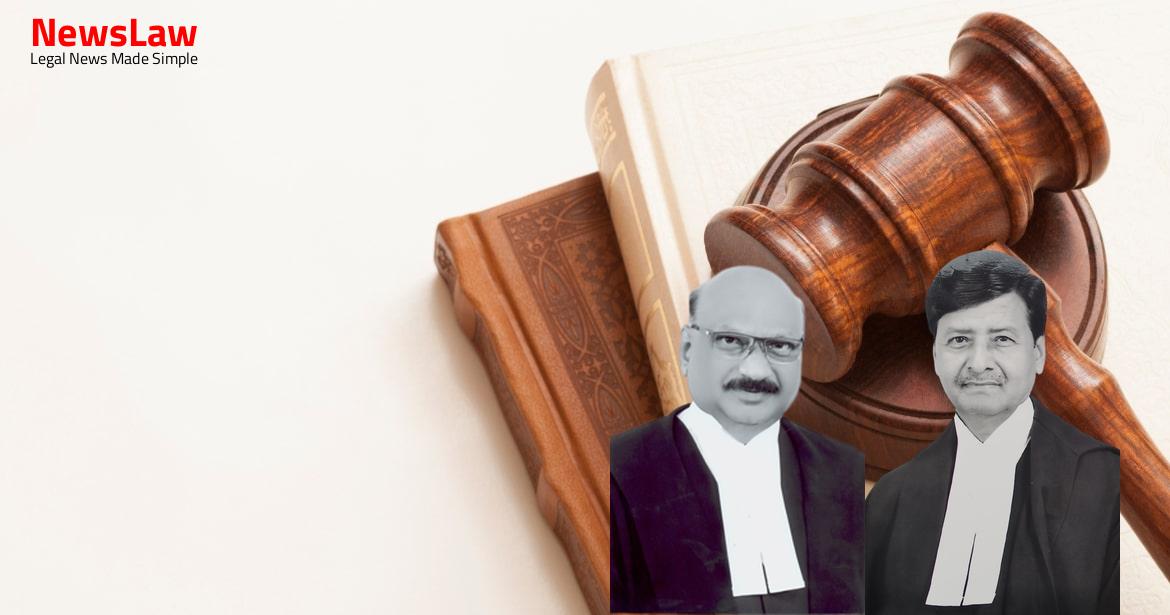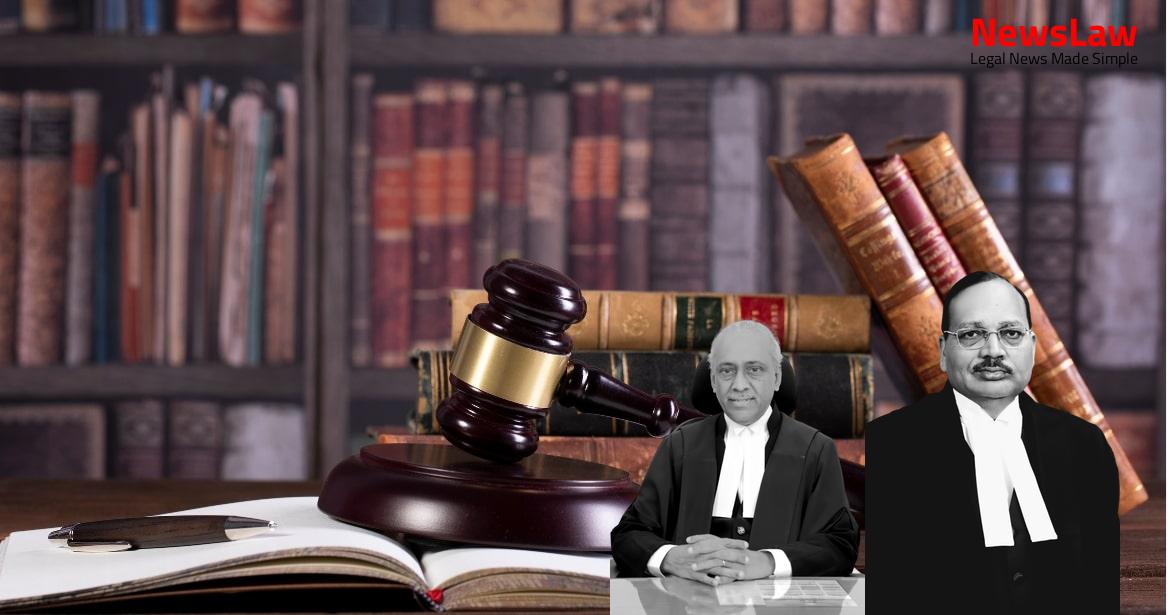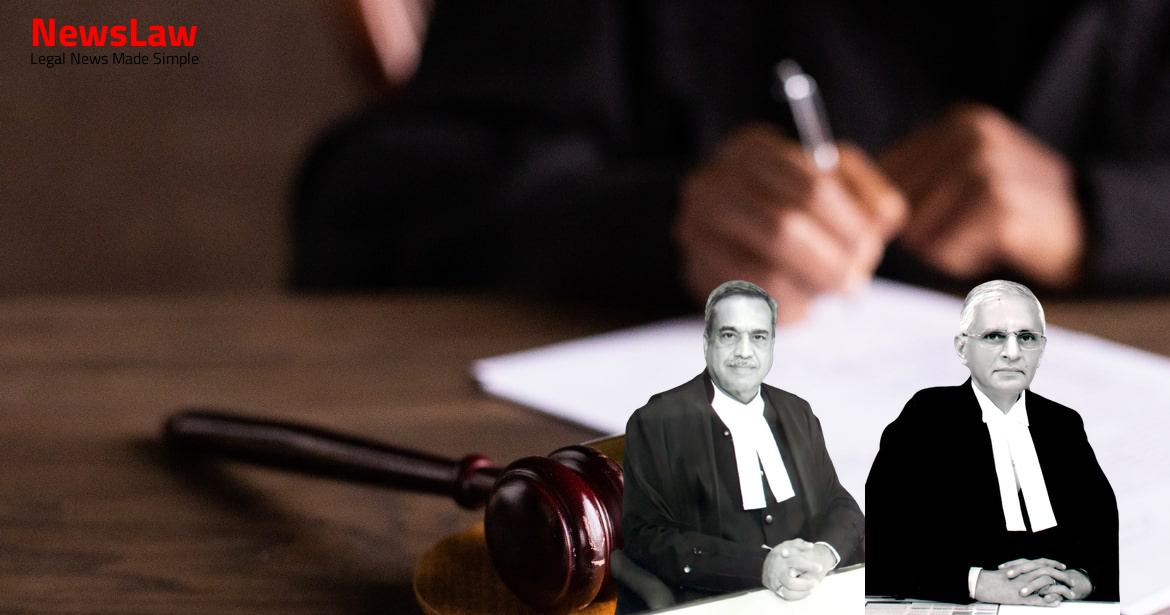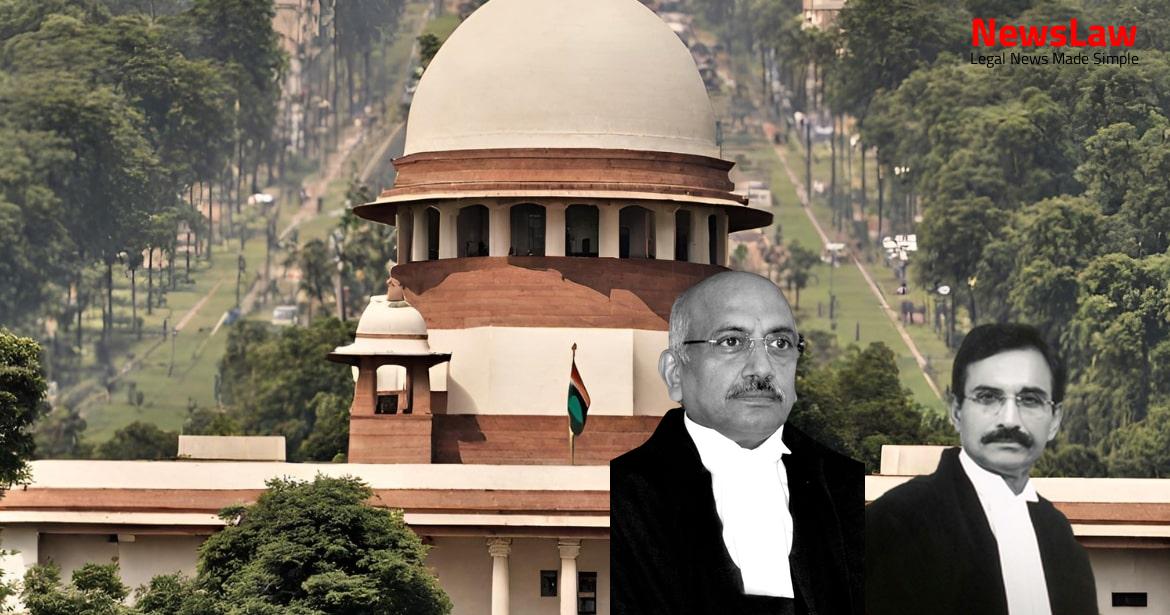In a significant legal ruling, the Supreme Court of India has decided a case involving a land exchange dispute. The judgment delves into the intricacies of the deeds involved and the implications of failing to adhere to statutory requirements. The dispute between the parties has been carefully considered, shedding light on the complexities of land transactions and legal procedures. Learn more about this case and its implications in the realm of property law.
Facts
- Late N.D. Chaudhary and Late Kesho Ram exchanged their respective plots without the required permission from the Assistant Collector as mandated by Section 161 of the Act, 1950.
- The Consolidation Officer initially upheld the validity of the sale deed dated 24 January, 1973, but on appeal, it was deemed unproven.
- The deed of exchange dated 2 March, 1974 was found void due to lack of permission under Section 161 of the Act, 1950.
- The State Government, upon revisional jurisdiction, dismissed the petitions related to the exchange, citing the illegality in the absence of proper permission.
- The High Court ultimately set aside the inter se rights of the parties, emphasizing the invalidity of the exchange under Section 166 read with Section 167 of the Act, 1950.
- It was noted that only the State Government could seek cancellation of the exchange, and not the original tenure holders who sold the plot to Late N.D. Chaudhary.
Also Read: Restitution Order in the Case of Temple Management: High Court vs. State
Issue
- Whether the registered exchange deed dated 2 March, 1974 was executed following the procedure prescribed under Section 161 of the Act, 1950.
- Analysis of the legal consequences arising from a failure to adhere to the prescribed procedure.
- Implications of executing the deed without following the statutory requirements.
- Evaluation of the potential impact on the validity of the exchange deed.
Also Read: Land Dispute: Legal Battle between Smt. Harinder Singh Ghuman and Lt. Col. Paramjit Singh Dhillon
Arguments
- Appellants’ counsel argues that High Court overstepped its jurisdiction under Article 227 by interfering with the consolidation authorities’ finding that late N.D. Chaudhary did not have his name mutated in the revenue records.
- The exchange deed executed without permission from the Assistant Collector makes late Kesho Ram unable to claim any right over the plot in question.
- Appellants assert a right over plot no. 2902 even though it was sold by Smt. Chando and Sita Ram jointly through a registered sale deed in 1973.
- Appellants emphasize the legal impact of Section 166 read with Section 167 of the Act, 1950, claiming entitlement to hold their right and possession over plot no. 2902.
- Respondents’ counsel supports the High Court’s decision, arguing that appellants lost their rights over the plot when they sold it to late N.D. Chaudhary in 1973.
- The absence of permission from the Assistant Collector does not invalidate the transfer of the property through the exchange deed dated March 2, 1974.
- Transfers made before June 3, 1981 under the Act, 1950 are not automatically void but voidable at the option of Gaon Sabha or the land holder within the limitation period, which was not invoked in this case.
- The High Court’s judgment is defended by the respondents as being free of errors warranting interference.
Also Read: Land Dispute: Burden of Proof Case Involving Plaintiff-First Respondent vs. Appellant-Defendant
Analysis
- Under the pre-amended scheme of the Act, 1950, non-compliance with Section 161 did not automatically render a transaction void but voidable
- The consequence of a voidable transaction under Section 167 required a suit to be filed within six years of the illegal transfer
- The amendment brought by U.P. Act No 20 of 1982 made every transfer in contravention of the Act automatically void
- The exchange deed in the case was executed in contravention of Section 161 without permission from the Assistant Collector
- No suit was filed for ejectment within the prescribed time frame as required by the Act
- Even if the exchange deed is considered void, the post-amended provisions only affect the specific deed executed without permission
- The deed of exchange between late N.D. Chaudhary and late Kesho Ram was executed on 2 March, 1974.
- Sections 161, 166 and 167 of the Act, 1950 prior to the 1981 amendment are discussed.
- The consequences of a transfer void under Section 166 are outlined, such as the land vesting in the State Government and the treatment of trees, crops, and wells on the land.
- Sections 161, 166 and 167 as amended by U.P. Act No 20 of 1982 are also presented.
- Rule 338 of the U.P. Zamindari Abolition & Land Reforms Rules, 1952 regarding void transfers is mentioned.
- The process of eviction by the Collector in case of land vesting in the State Government is explained.
- Late Smt. Chando and Sita Ram, as original tenure holders, do not have the right to claim benefit of a defect in the deed of exchange dated March 2, 1974, as they did not follow the required procedure of obtaining permission from the Assistant Collector under Section 161 of the Act, 1950.
- The present appellants did not raise any plea for cancellation of the registered sale deed executed in favor of late N.D. Chaudhary on January 24, 1973, which was not the subject matter under the provisions of the Act, 1950.
- The appellants’ claim that the exchange deed is void due to lack of permission from the Assistant Collector and they are entitled to restoration of the plot sold to N.D. Chaudhary is unsubstantiated as these are two separate transactions that occurred with the subject plot.
- The rights transferred by the present appellants to N.D. Chaudhary in the sale deed dated January 24, 1973, were not in violation of the Act, 1950, or any other law.
Decision
- Pending applications disposed of.
- Non-compliance of mandatory requirement under Section 161 of the Act, 1950 in exchange deed dated 2 March, 1974 leads to void transaction consequences under Section 166 and 167.
- No preference given to appellants for restoration of their rights and nullifying the registered sale deed dated 24 January, 1973 in favor of late N.D. Chaudhary.
- High Court’s conclusions in the judgment are considered unassailable and do not require interference.
- Appeals dismissed.
Case Title: SITA RAM (DEAD) THROUGH LRS. Vs. BHARAT SINGH (DEAD) THROUGH LRS.
Case Number: C.A. No.-008179-008179 / 2016



